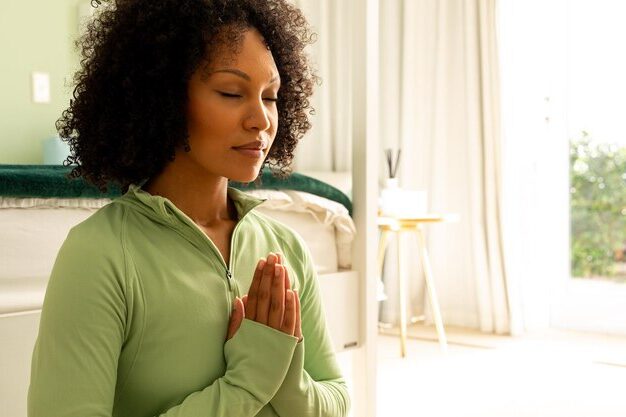“Faith, hope, and love—these three remain, but the greatest of these is love.” (1 Corinthians 13:13)
A man once asked me, “How do I get into Heaven?” The answer came effortlessly: “Live as though you’re already a resident of Heaven.” This wasn’t about earning a place but realizing that Heaven is a state of being. It exists in the here and now if we allow love to guide us.
Love in Action: A Turning Point
In the summer of 2003, before my spiritual awakening, I heard an inner voice during meditation: “Practice love.” At first, I thought I was already loving—I was kind to my family and polite to strangers. But the more I reflected, the more I realized my love was conditional. It was confined to people I liked or felt comfortable around.
Then came the humbling moment: a homeless man on the streets of Washington, D.C., asked me for money. I walked by, justifying my inaction with thoughts like, I need this for gas, or He’ll probably misuse it. But later, I felt the sting of truth: how could I claim to care about suffering in distant places while ignoring someone in need right in front of me?
The Challenge of Unconditional Love
Practicing love wasn’t about grand gestures but small, everyday choices. I started noticing how judgment crept into my thoughts and how it kept me from truly loving others. For instance, when someone cut me off in traffic or bumped into me on the street, my instinct was to react with frustration or blame. These moments tested me to respond with grace instead of resentment.
Over time, I realized this practice wasn’t about changing others—it was about transforming myself. By letting go of judgment and choosing compassion, I began to see the divine light in everyone, even those who seemed rude or unkind. This shift didn’t just benefit others—it freed me from the burden of negativity and self-righteousness.
A New Way of Being
The transformation wasn’t instant. The first two weeks felt like climbing a steep hill, especially when faced with old habits like complaining or irritation. But as I persisted, my life began to change. I forgave others more easily, and in doing so, I found it easier to forgive myself. My relationships deepened, and even my co-workers noticed the change. Instead of venting about minor annoyances, I chose to focus on gratitude and peace.
True love, I discovered, is unconditional. It doesn’t judge, demand, or control. It simply allows others to be themselves while encouraging our own growth. This kind of love invites us to connect with the Heaven within us—a space of unity, peace, and boundless compassion.
Simple Acts, Profound Impact
Giving isn’t always about money. It’s as simple as offering a kind word, a smile, or a moment of genuine acknowledgment. Even when we can’t solve someone’s problem, we can choose empathy over indifference. Each act of love, no matter how small, ripples outward, touching lives in ways we may never fully see.
The Invitation
Practicing love has been the most transformative journey of my life. This practice became the foundation that prepared me for the next stage of my journey: connecting with the divine within, my Higher Self. This profound shift brought clarity to my evolutionary path, freeing me from old, limiting views of love. It allowed me to embrace a deeper, more transformative understanding of life.
I encourage you to practice unconditional love and work on eliminating negativity from your life. Even a small effort can lead to noticeable transformations, bringing greater peace, joy, and fulfillment.
It’s not always easy, but it’s always worth it. So, I invite you to try it: let go of judgment, extend kindness, and forgive yourself and others. Start small and watch how your world shifts. It becomes increasingly natural as you train your mind to focus on the bright side of life. This practice is something I strive to maintain every day, and its impact has been nothing short of life-changing.
- Love does not judge
- Love forgives
- Love is not negative
- Love does not force or control
- Love is not power struggles
- Love is never demanding or possessive
- Love makes room to allow people to be who they are
- Love is not division of people based on race, age, sexuality, gender, religion or nationality
- Love is unconditional
Heaven isn’t a distant dream—it’s within us, waiting to be lived. As the Great Teacher said, “On Earth as it is in Heaven.” When we live with love as our guide, we bring a piece of Heaven into our daily lives and into the lives of those around us.
The Law of Divine Oneness helps us to understand that we live in a world where everything is connected to everything else. Everything we do, say, think and believe affects others and the universe around us.
The Law of Forgiveness shows us that we cannot purify ourselves as long as we harbor negative feelings of hate, anger, intolerance and criticism towards others. It is in forgiving others that we forgive ourselves.
The Law of Right Human Relations tells us that we should have goodwill and be concerned with the welfare of others and world peace. The principle of Goodwill is the basic intention to do good will. We can will good to promote right human relations. We can use a complete thought form, built by the balanced fusion of thought, feelings, imagination/visualization, and will. There are tools that we can use to create a complete thought form: Concentration, repetitive affirmations, contemplation, creative visualization, and meditation.
